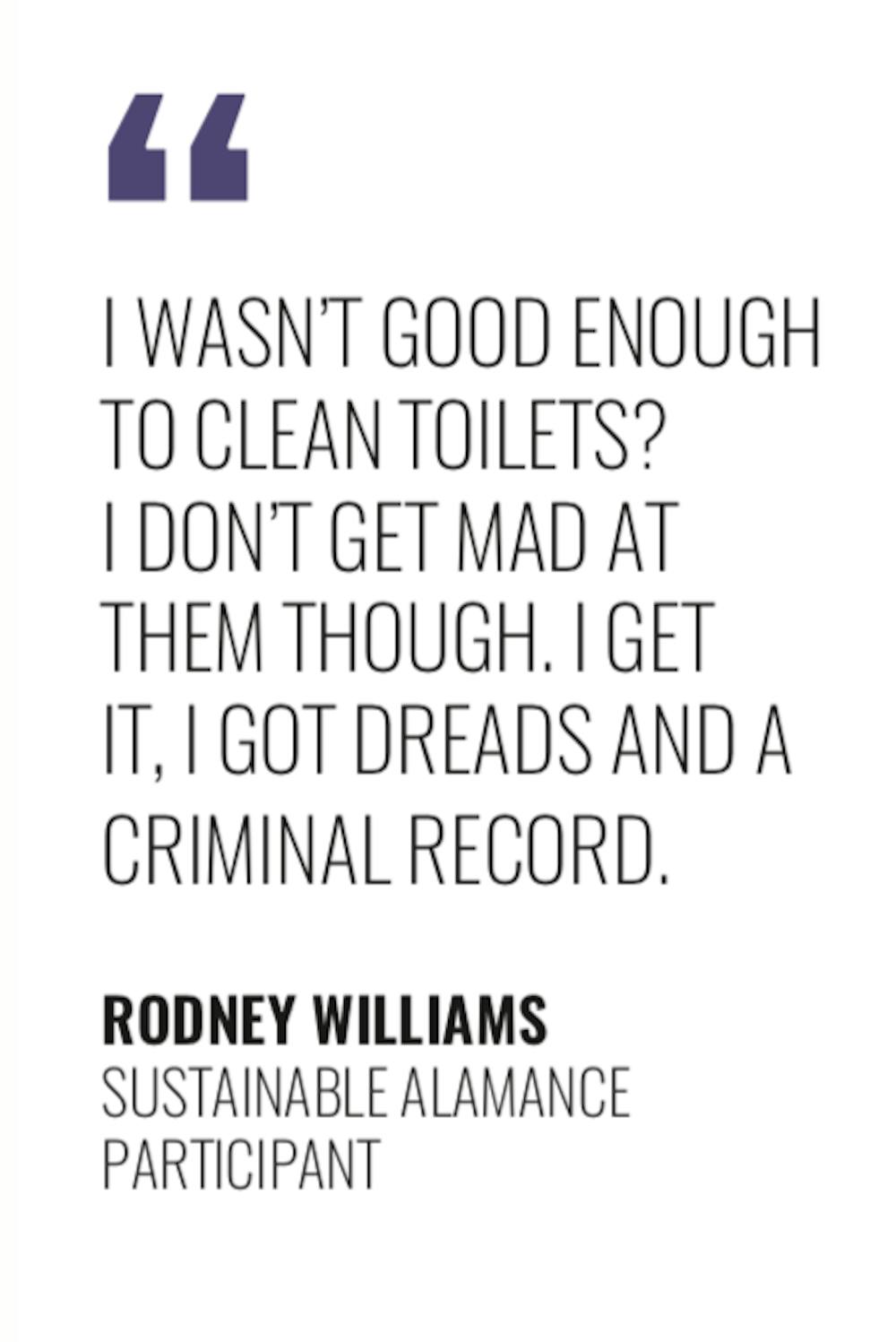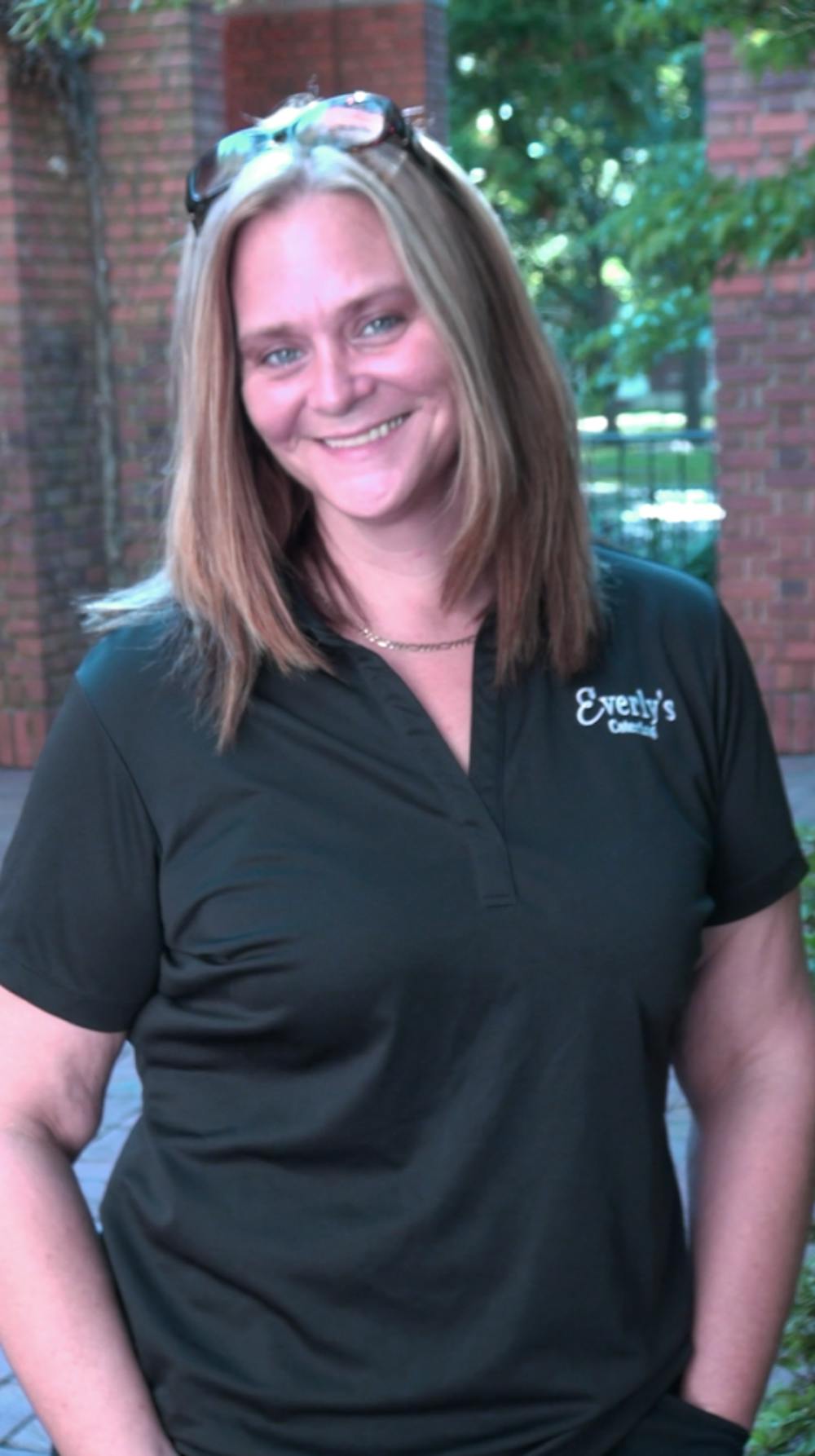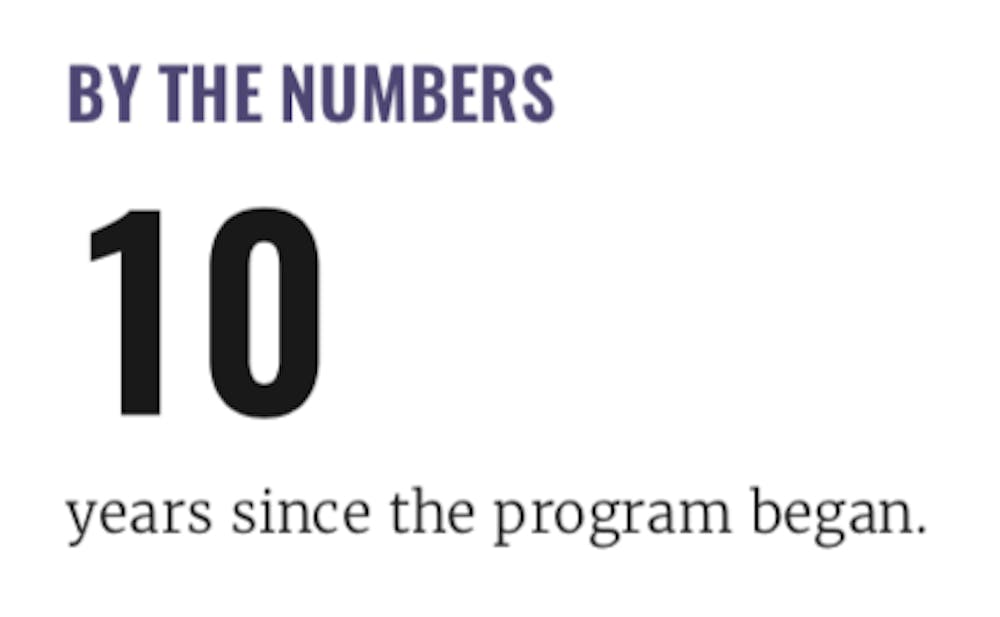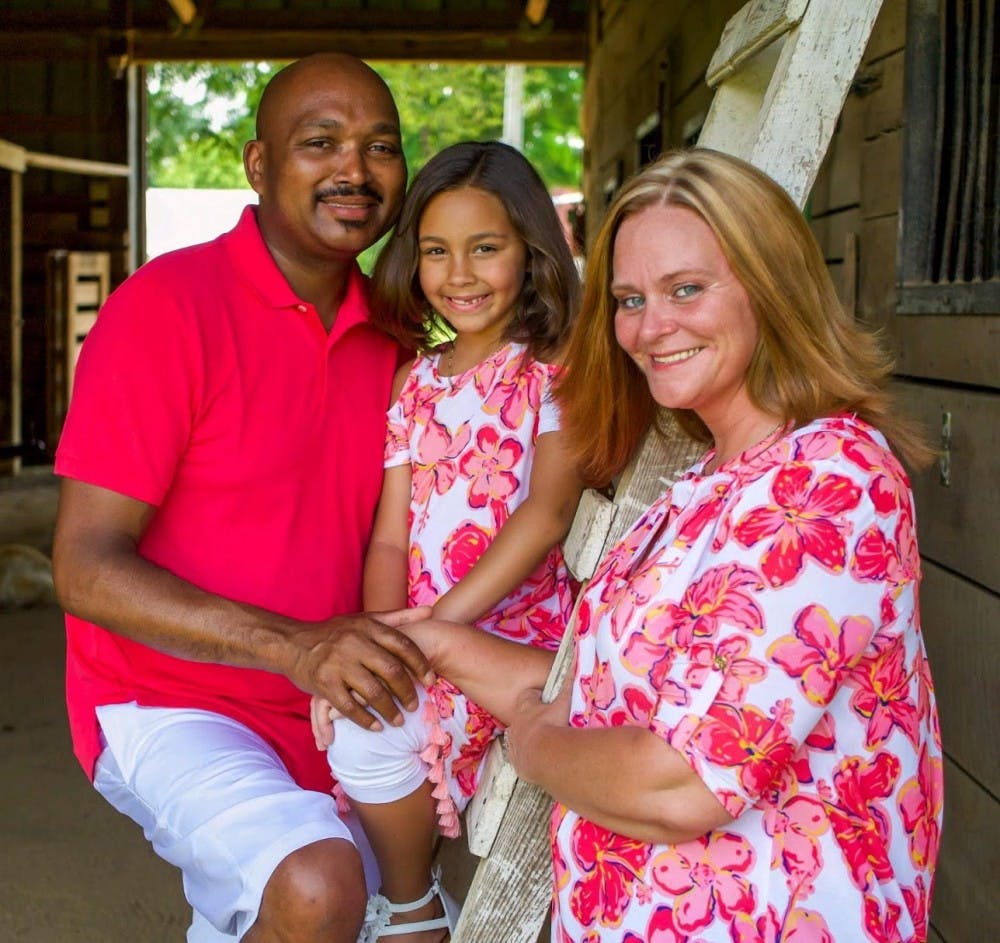Rodney Williams, 49, Everly Evans, 39, and Kristen Brown, 27, grew up surrounded by violence and drugs, but all three of them are trying to turn over a new leaf at Sustainable Alamance.
Sustainable Alamance is a nonprofit Christian rehabilitation program whose goal is “To build a stronger and more sustainable community, not only by promoting wise use of local natural and economic resources, but by identifying, developing and including underutilized human resources that are effectively prevented from participating in the local economy.”
Sustainable Alamance was founded 10 years ago by Phil Bowers. People who are looking for jobs, education, who want to get closer to God and as far away as possible from crime, go to Sustainable Alamance. Sustainable Alamance offers participants a second chance.
Williams grew up in what he called "the hood" of New York. He said he has always been surrounded by drugs, robberies, pistols and violence.
At age 12, Williams was going to school and then going directly to a drug pack house where he got paid to cut crack cocaine. Eventually, Williams started taking some of the crack he cut and selling it in the streets — where he realized that he had a talent for selling drugs.
"Selling drugs was all I knew," Williams said. "I had never done anything else. I could buy the drugs cheap and sell it for high — I was getting free money. Money is free, but time is not."
Williams said he has never done drugs and at the time, he didn't know what he was selling — he only knew that it was worth a great deal of money.

He was caught selling cocaine for the first time when he was 16, and he was sent to prison for two years in Upstate New York. Since then, he has been in and out of prison: he has done time in Massachusetts, New York, North Carolina, Washington D.C. and Virginia.
Most recently, Williams was sentenced to 300 months in prison for drug dealing and arms possession.Williams got out of prison in Petersburg, Virgina, on June 14, 2018. When he was released, he said he decided it was time for a change.
"I was going all over to get the money. So it’s what I did, it’s who I was, you feel me? One more conviction, I’m dead, I'm going to die in prison. I got 20 this time. If they give me the same time they gave me last time, they’ll give me the same 20 years and I’ll never make it out," Williams said. "Well, if I do, I’d be old and decrepit. You never want that. So that’s what I’m trying to change, my narrative, like who I am."
Williams is now part of a nonprofit Christian organization called Sustainable Alamance. Sustainable Alamance was founded 10 years ago by Phil Bowers. People who are looking for jobs, education, who want to get closer to God and as far away as possible from crime, go to Sustainable Alamance. Something else that Sustainable Alamance provides to its participants and that they value deeply is a second chance.
Sustainable Alamance has meetings every Monday and Wednesday. These meetings are run by Bowers and Robert Rossi, the program director. According to Williams, Sustainable Alamance has had a great impact on his life.
"I’m in Sustainable Alamance because the more positive things I do, the more positive things I can get into," Williams said. "I'm ecstatic I'm out. I can breathe the fresh air and look at the sun. I'm also working on my relationships with my sons. I've been gone for 20 years, so I have to get to know them."

"The willingness to trust us is a big deal," Bowers said. "We've had relationships now where they open, where they feel safe. We trust each other and they are willing to share. Rodney was probably the most quiet that we've had in quite a while, he was referred to us by one of our older guys. I think he came here and didn't know what to expect, but I love this guy, he's got this smile and he's extremely bright. So I think we're on the verge for something really big for this guy."
Williams was able to find a job in Graham, though he requested the location not be disclosed. He said he's deeply proud of himself for finding a job. As of now, Williams is living with his sister, but he's saving up to buy a house for him and his family.
"Finding a job was hard, yo," Williams said. "Not many people wanted to hire me because of my record. I was honest with all of them: I haven't had a job — all I've done is drug dealing. I didn't have no resume to give. I didn't even get the job as a janitor — I wasn't good enough to clean toilets? I don't get mad at them though, I get it, I got dreads and a criminal record."
Even though the job search was difficult for him, Williams said he is happy that there was someone who "was willing to take a chance on him." He wakes up every day at 5 a.m. to get to work and said he is proud to do so.
"I want to provide for my kids. I even have a grandkid now, and this time, I'm gonna do it right," Williams said.
Everly Evans
"I am a four-time felon with 49 misdemeanors," said Everly Evans, the current owner and manager of Everly's Catering. Evans, 39, grew up surrounded by drugs. "My childhood wasn't awful. My mom raised me, her and my stepdad" Evans said. "My mom and stepdad were on drugs really bad, so I had to take responsibility and make sure everyone was OK."
Evans turned to drugs at a young age. She said drugs such as marijuana and cocaine helped her deal with emotional pain from her childhood that she wasn't ready to face. While her addiction ran her life, she got pregnant at 18 and had her first son. Not long after, she used cocaine.
Evans' father died of cirrhosis before one of Evans' biggest relapses, and her mother died of drug overdose while Evans was in prison.

To pay for her drugs, Evans would pretend that she had money left from the inheritance her dad had left for her, even though she had already used it all. She wrote worthless checks that lead to her getting arrested one to two times a week.
Evans' incarceration program consisted of doing half of the time in prison and half the time focusing on drug rehabilitation. She was in prison for 11 months. Not long after, she relapsed.
"It wasn't long when I relapsed again, and I just went back to the same life," Evans said. "Using drugs and just coning people — lying to get what I needed."
A little time went by, and Evans was contacted by social services. According to her, "social services doesn't try to take your kids. They give you a chance first — they gave me a chance." But as time went by, Evans' two boys were going to be placed into a foster family.
Evans thought they would have a chance at a better life in the foster system. She said she didn't want to cause them any more pain and she gave her children up for adoption. Her oldest son was 5 years old, and the youngest was 3. Their foster mom adopted them. She sends Evans pictures of them so that she can see them grow. Today, Evans said she believes she made the right decision and is content knowing her sons are living the lives they deserve.
"It was hard. To see the impact in my children — that, I think, was the hardest part for me," Evans said. "I don't have contact with them, but I think that when it's time, they'll find me."
After she signed her children up for adoption, Evans met the man who is her husband now. He was abusive, and after four years together, Evans decided to go to a Christian-based rehabilitation center. At the center, she got clean and decided she was ready to start a new life, but her husband wouldn't stop contacting her — asking what he could do in order for them to get back together.
Evans told him that if he went to rehabilitation and completely stopped using drugs, she would get back together with him. To her surprise, he did. Now, they both attend Sustainable Alamance.
Bowers said Everly is now a completely different person than she was when she arrived.
"Everly has made more progress because she has been around here longer," Bowers said. "Everly has a remarkable story, and especially when it's shared with other people."
After Evans and her husband got back together, they decided to get married and started to take care of a little girl named Jordan, whose mom was suffering from drug addiction. Eventually, Evans adopted her. Today Jordan is 7, and Evans said that she is her own little angel.
"We just saw a need and tried to meet a need," Evans said. "For me, for sure, because I feel like somebody did it for me when I wasn't willing to do it; how dare I not help this baby?"
Today, Evans has her own catering company called Everly's Catering. She changed her life and chose a different path. Evans thanks God for leading her in the right direction.
Kristen Brown
When Kristen Brown, 27, was a child, there were always drugs in her house. Her mother and stepfather used and sold drugs. This environment was normal for Brown — it was her reality. Brown's mother introduced her to marijuana when she was 8 so that she would sit still in class and had her try cocaine when she was 11.
Brown is now facing an estimate of three years in prison starting Dec. 17. Brown pleaded guilty to drug trafficking charges after she was caught in her home with cocaine, methamphetamine, marijuana and a gun last year.
According to Brown, she was dealing drugs to buy her three young daughters everything they want and need — so that they could be happy. Brown's husband was verbally, physically and sexually abusive, and it hurts her to know that her daughters have had to watch their father abuse their mother.
"Honestly, I think that the stuff he did to me in front of them probably did way more damage than if he would've put his hands on them," Brown said. "This one time, I had left him. I was 21 weeks pregnant — we were going to have a son — and we got into a fight. He beat me and I lost the baby."
They were separated for six months after that, until he convinced Brown to get back with him. They kept fighting constantly, until one day, Brown realized that he had been using drugs again and decided to confront him. He hit her and yelled at her. Brown believes that the neighbors called Social Services because they came and took their kids away. Moreover, when they drug tested Brown's daughters, her youngest daughter, 5, who had been staying with her father, tested positive for cocaine. The father is not allowed near them because he is considered to be a danger to their safety.
Brown said she is fighting and will keep fighting to get her children back. She has accepted her charges and hopes that being in prison will make her more responsible. Social Services has required her to take educational domestic abuse classes and for her to learn how to have healthy relationships.
Brown is also determined to stop selling drugs. She hopes Sustainable Alamance will help her overcome her past, plan her future, find jobs and share her story.
"I had a little heart-to-heart with Phil, and I was like complaining about how it was hard to do all this stuff, and he was like 'but you know, you're still selling, so what happens next time you get popped? If you get arrested again before you go to the court for your current charges, they're definitely going to give you max because they're gonna feel like you're not even trying to do better,'" Brown said.
"Nobody knows what to think of this one," Bowers said of Brown. "I think that at first, she didn't know if she could trust us or not, but she came to figure it out. I hope that we've made that clear: that we're for real and that we'll offer whatever we can. I think she's worked through some stuff, maybe by having a place to talk freely — about her and her kids, who she stays with, what are some of the struggles she's facing — but I think that is all part of the journey. She's easy to work with because what you see is what you get. There's no mask in that one. I think there is so much potential, we're just may be in a little bit of a hold for a while".

Brown said she is sure that she will continue to come to Sustainable Alamance when she's released.
"I'm doing everything I can to get my kids back. I'm done selling drugs," Brown said. "I got a public defender that sucks for this trial, but I have no money to get a better one, and I am not going to sell drugs again to get that money."
Brown said her dream is to open a women's shelter and help women who feel like they don't have a voice or power, like she did when she was abused.


